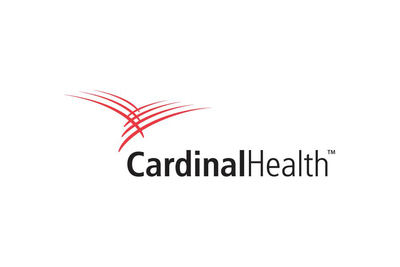Oncologists have grown more comfortable with CAR-T therapy, research finds
Cardinal Health's latest research reveals a growing comfort among oncologists with CAR-T cell therapy, with 60% finding costs reasonable, up from 39% in 2017. The report, based on surveys of 300+ U.S. oncologists, indicates a significant increase in referrals to CAR-T therapy, rising from 54% in 2019 to 91%. Despite these positive changes, challenges remain, including payer approvals and administrative hurdles. The research also highlights the ongoing impact of COVID-19 on cancer screening and the use of telemedicine in oncology.
- 60% of oncologists now find CAR-T therapy costs reasonable, up from 39% in 2017.
- 91% of oncologists referred a patient for CAR-T therapy in the last year, significantly up from 54% in 2019.
- Payer approvals remain a significant barrier to CAR-T therapy access.
- Cumbersome administrative processes continue to hinder CAR-T therapy implementation.
Insights
Analyzing...
DUBLIN, Ohio, June 3, 2021 /PRNewswire/ -- Four years after the approval of the first CAR-T cell therapies, oncologists are referring more patients for treatment and becoming more comfortable with the cost. However, payer approvals and cumbersome administrative processes are still key barriers, according to new research published from Cardinal Health Specialty Solutions.
CAR-T cell therapy uses the body's own immune system to fight cancer. It works by taking blood from patients and separating out the T cells, then genetically engineering them to produce chimeric antigen receptors (CARs) on their surface, which can target and kill cancer cells. Today, there are five CAR-T products approved in the United States (U.S.) for seven different indications including various lymphomas and multiple myeloma.
The perceptions and current use of CAR-T therapy by oncologists are explored in the latest edition of Oncology Insights, a biannual research-based report series authored by Cardinal Health (NYSE: CAH), analyzing surveys of more than 300 U.S. oncologists. The surveys were conducted between February - April 2021, culminating in the report's publication today.
"The innovative science behind cell therapies like CAR-T is transforming the long-term outlook for many cancer patients. Our latest research shows that, despite some barriers to access, oncologists are embracing these new therapies and are optimistic about their continued use in the future of oncology care," said Heidi Hunter, President of Cardinal Health Specialty Solutions.
The study finds
In addition to assessing views about CAR-T, the report also explores the continued impact of COVID-19 on oncology and discusses performance in value-based care. These key findings identified:
- About two-thirds of participating oncologists report delays in routine cancer screening due to the COVID-19 pandemic;
89% of participants expect to continue using telemedicine after the end of the COVID-19 pandemic; and- Nearly four in 10 participants said it is difficult or very difficult to perform well under value-based care models, and just one in four participating oncologists agree that current technologies support success in value-based care.
About Oncology Insights
Oncology Insights is a biannual research-based report series authored by Cardinal Health (NYSE: CAH). The findings are based on web-based surveys conducted between February - April 2021. This ninth edition report survey included participation from more than 300 U.S oncologists, representing a diverse mix of community and hospital-based practices, as well as viewpoints from Cardinal Health leaders Chief Medical Officer Bruce Feinberg, DO; Vice President, Senior Medical Director Ajeet Gajra, MD, MBBS, FACP; and Amy Valley, PharmD, Vice President, Clinical Strategy and Technology Solutions.
About Cardinal Health
Cardinal Health is a distributor of pharmaceuticals, a global manufacturer and distributor of medical and laboratory products, and a provider of performance and data solutions for health care facilities. With 50 years in business, operations in more than 40 countries and approximately 48,000 employees globally, Cardinal Health is essential to care. Information about Cardinal Health is available at cardinalhealth.com.
Contacts
Media: to request a copy of the report, please contact Marcia Frederick, marcia.frederick@cardinalhealth.com and (614) 757-9968; Investors: Kevin Moran, kevin.moran@cardinalhealth.com and (614) 757-7942.
- Oncology Insights, Cardinal Health, Dec 2017
- Gajra A, Jeune-Smith Y, Kish J, Yeh TC, Hime S, Feinberg B. Perceptions of community hematologists/oncologists on barriers to chimeric antigen receptor T-cell therapy for the treatment of diffuse large B-cell lymphoma. Immunotherapy. 2020 Jul;12(10):725-732. doi: 10.2217/imt-2020-0118. Epub 2020 Jun 18. PMID: 32552151.
![]() View original content to download multimedia:http://www.prnewswire.com/news-releases/oncologists-have-grown-more-comfortable-with-car-t-therapy-research-finds-301305063.html
View original content to download multimedia:http://www.prnewswire.com/news-releases/oncologists-have-grown-more-comfortable-with-car-t-therapy-research-finds-301305063.html
SOURCE Cardinal Health








